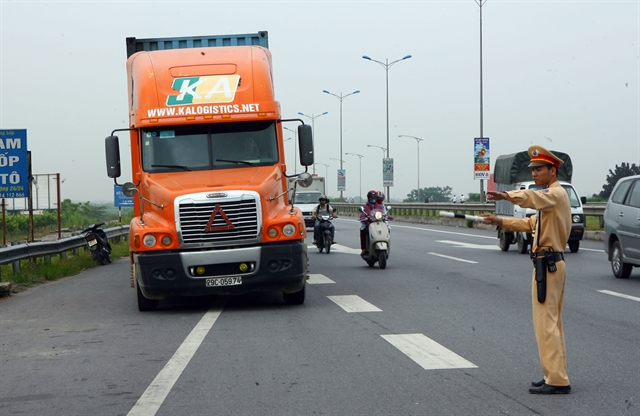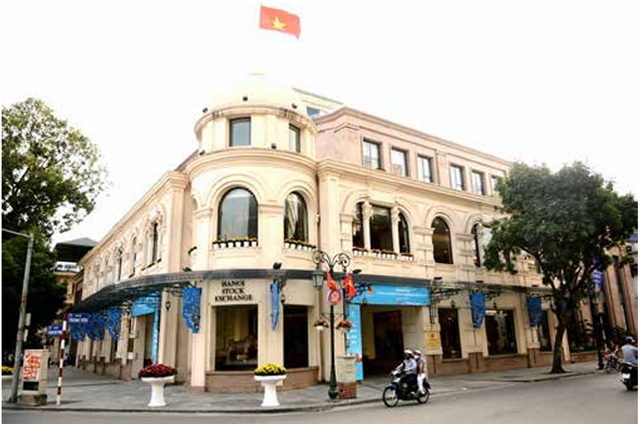 Society
Society

 |
| A traffic police officer handling an alleged red traffic signal violation in Hà Nội in early January. — VNA/VNS Photo Phạm Kiên |
HÀ NỘI — Experts have advised caution in proceeding with Hà Nội’s proposal to double the administrative fines for multiple traffic violations, especially as the new nationwide decree raising the penalties for road offences took effect just under two months ago.
The city’s draft resolution, which plans to increase the fines for 107 road traffic violations by 1.5 to two times national levels, is currently open for feedback.
Speaking to Vietnamnet, Associate Professor Dr Từ Sỹ Sùa from the University of Transport and Communications said while it is normal for the capital city to implement its specific regulations, it is inadvisable to increase the penalties in the current circumstances.
“Hà Nội may want to be a pioneer in raising the fines, but this process takes time, in my opinion. Hà Nội’s proposal to further increase penalties for road offences when Decree 168 took effect not long ago is not feasible,” said Sùa.
He added: “The fines outlined in Decree 168 are considered sufficient as a deterrent against violations, therefore it is better to give them time to demonstrate their impact.
“The ‘lifespan’ of a decree is at least three years. After two to three years, we can evaluate if there are issues in Hà Nội that Decree 168 has not addressed, and then make regulatory adjustments. If Hà Nội increases the fines now, it would create a situation of overlapping regulations (double fines), similar to double taxation.”
The proposal might also exacerbate pressures on migrants from other cities and provinces if it is passed and goes into effect this July, he said, as those who travel from outside the city may not know whether to comply with Decree 168 or the city resolution.
“In my opinion, it is not necessary for Hà Nội to increase fines at this time and create multiple pressures on people,” said Sùa.
Lawyer Đặng Văn Cường from the Hà Nội Bar Association agreed, stressing that the capital city needs to thoroughly consider the proposed fine increases.
Raising fines should strengthen management efforts rather than increasing budget revenue, he said.
The amounts collected from handling administrative violations are usually reinvested into the sector itself, he explained. For example, fines collected from handling road offences will be reinvested to develop traffic infrastructure, road signs and other efforts to ensure traffic order and safety, per Government Decree No. 176/2024/NĐ-CP.
“Increasing administrative fines for social affairs, including traffic, is a common practice. The reason for the recent penalty increases is that the previous levels were insufficient to serve as a deterrent, or ineffective due to changes in socio-economic situation and inflation,” said Cường.
“However, when the Government’s Decree 168 has introduced strict penalties and local authorities continue to implement specific regulations that further raise the fine levels, the situation can be seen as unusual, therefore, thorough consideration is necessary,” he added.
The lawyer emphasised that Hà Nội, in principle, has the authority to increase the administrative fines for road offences, as long as they do not exceed the limits set by the law on handling administrative violations.
However, whether the increases are reasonable or feasible depends on multiple factors, such as local socio-economic development, living standards and the effectiveness these changes will bring.
If they exceed the financial capacity of road users, these increases can have negative impacts on society as well as residents' quality of life and livelihoods.
“I believe that careful consideration should be given to the timing and feasibility of the new regulations, ensuring effectiveness in exercising legal documents,” said Cường. — VNS




